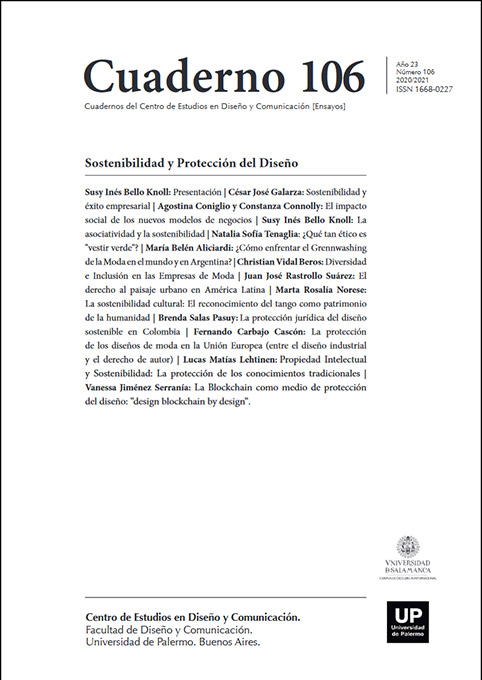Cómo enfrentar el Grennwashing de la Moda en el mundo y en Argentina?
Abstract
Fashion is the second most polluting industry in the world, after oil, since they use few local materials, harmful tinctures and a lot of water, pay precarious salaries, with very long hours in inhuman spaces among other problems. Given this, today consumers begin to demand brands more information about the sustainability of their production. And if these big multinationals have something they are resources to change, but also to invest in advertising to look like something they are not (greenwashig). Argentina does not escape this form of advertising. How do we know if the fashion company only publishes misleading? Thanks to blockchain we can know the history of each garment, from its origin, to the details of the origin of the materials, where it has been produced or how it has been transformed -traceability. This circumstance allows us to build trust in all links in the fashion system chain. Which materializes through applications and labels.
References
Aliciardi, María Belén. Compras Sostenibles, Cadena De Valor, Valor Compartido, Trazabilidad y Blockchain. Revista Gerencia Ambiental Nº 263. Diciembre 2019. Conferencia de la ONU sobre Comercio y Desarrollo (UNCTAD, por sus siglas en inglés) del 2019. Panel de Alto Nivel de las Naciones Unidas. “La moda y los Objetivos de Desarrollo Sostenible: ¿qué función tiene la ONU?” del 16 de abril de 2018. Quantis y la Fundación Climate Works, Informe: “Midiendo la Moda”.
Los autores/as que publiquen en esta revista ceden los derechos de autor y de publicación a "Cuadernos del Centro de Estudios de Diseño y Comunicación", Aceptando el registro de su trabajo bajo una licencia de atribución de Creative Commons, que permite a terceros utilizar lo publicado siempre que de el crédito pertinente a los autores y a esta revista.


